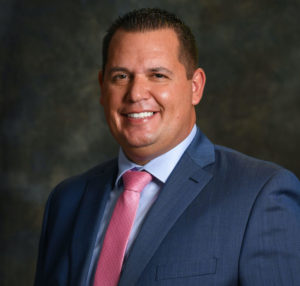Frisco Juvenile Crimes Lawyer

It can be difficult for any parent to keep a child out of trouble. Juveniles tend to act impulsively. When their behavior crosses over into the criminal justice system, it’s natural to feel overwhelmed and stressed. Call an experienced Frisco juvenile crimes lawyer and take the first step to getting your child’s life back on track.
At the Edgett Law Firm, we regularly handle juvenile cases in Frisco, TX, and know the system inside and out. When we represent your child, you can expect a strong, aggressive defense team that will explore every option to protect your child’s future.
Are you ready to explore your legal options? Call our law offices to schedule a free consultation with our skilled attorneys today.
Why You Need Edgett Law Firm In Your Corner When Your Child’s Future Is At Stake

Minors have the right to an attorney anytime they’re brought into custody for questioning. It’s important to exercise that right to avoid saying something you’ll regret later.
Our Frisco criminal defense lawyers at the Edgett Law Firm take juvenile crime cases seriously. We’ll do everything we can to make sure your child has the aggressive defense they deserve.
When we establish an attorney-client relationship, our attorneys can also help by:
Clarifying The Juvenile Justice Process
Juveniles–and parents–often have little knowledge of the juvenile justice process. It’s common to believe that the penalties you might face aren’t that serious. Our attorneys will work to help you understand the process and penalties at stake when you’re facing juvenile charges.
Fighting For An Alternative To Conviction
Juvenile cases differ from adult court because we generally have a wider range of available options for resolving the matter favorably. Both prosecutors and judges have substantial discretion when juveniles are involved. However, that doesn’t mean they’ll automatically choose to favor rehabilitation over harsher punishments.
Our lawyers take the time to get to know you and your family. We’ll learn everything we can about the crime alleged and your child’s history. That way, we can use our legal skills to portray your child in the most favorable light possible at all stages of the process.
Our lawyers will start negotiating with the prosecuting attorney at the outset. Prosecutors in Texas don’t always have to charge a suspected minor with a crime. We’ll advocate for an alternative to conviction even before your child is charged–and aim to have the charges dropped entirely.
If your child is charged, we’ll fight to build the strongest defense possible to minimize the future consequences.
Have the police taken your child into custody? If so, you don’t have to wait to start fighting back. Call the experienced Frisco criminal defense attorneys at the Edgett Law Firm for a free consultation right away. We represent clients in Frisco and across Collin County, Texas.
Understanding The Juvenile Criminal Justice System In Texas
In Texas, minors can be taken into police custody for anything adults can be arrested for. They can also be detained for acts that are only criminal because of the juvenile’s age. In other words, a juvenile can be taken into custody if the police have probable cause to suspect:
- The juvenile committed a crime
- The juvenile engaged in delinquent conduct under Texas Family Code Section 51.03
If your child is in trouble, you’re probably wondering what’s going to happen next. Unless the crime alleged is particularly serious, your child will probably be sent home with you, pending the next steps. For more serious or violent crimes, your child might be detained.
Below is a general outline of the juvenile criminal justice process here in Texas. Our lawyers are here to explain the process in greater detail at your convenience.
What Happens If My Child Was Taken Into Custody?
If your child was taken into custody, police are required to notify you as soon as possible. They’re also required to tell you why your child was taken into custody.
Within 48 hours, a hearing must take place where a judge or magistrate decides whether to keep your child in detention or release the child into your custody. Usually, this happens sooner rather than later, and in most cases, your child will be sent home with you.
Reasons the child may be detained include:
- Lack of proper supervision at home
- A high probability that the child will be taken from, or flee, the court’s jurisdiction
- A high probability that the child will commit another offense if released
- The child is a danger to himself/herself or others
If your child is detained, the child must be separated (both in sight and sound) from adults under Texas Family Code Section 51.12. Further, detention hearings must be held at regular intervals to evaluate whether the juvenile should remain in custody.
If your child is sent home, the case will usually proceed along one of two paths: the general juvenile adjudication process or referral to an alternate, probation-like pathway.
Juvenile Adjudication Process
In the most serious cases, an evaluation of whether the juvenile should be transferred to adult court will take place. If the possibility of transfer is on the table, it’s critical that you have an experienced juvenile crimes defense attorney representing your child’s interests. Children under age 14 can never be transferred to adult court.
If the case remains in juvenile court, a trial will proceed much like any other. Each side will present evidence, and the judge will determine whether to adjudicate the child delinquent or not (in other words, determine whether the child is guilty or not guilty).
If the child is adjudicated delinquent (found guilty), a disposition hearing is held. This is where the judge determines the appropriate penalties. Unlike in adult cases, the judge has the authority to consider a range of factors when assigning punishment.
Those might include:
- The likelihood that rehabilitation will be successful
- The juvenile’s prior history
- The juvenile’s support system at home
- Performance in school
- Participation in the community
- Any other relevant factor
Your child deserves a strong defense throughout the entire juvenile criminal justice process. Our defense lawyers in Frisco are always available to talk about your defense options, so don’t hesitate to call us today.
First Offender Program
Rather than charging the juvenile formally, the prosecutor has the authority to refer your child to a first offender program. Contrary to what the name suggests, it is possible for juveniles to pass through the first offender program more than once.
The first offender program for juveniles is similar to a probationary period. For a period of time, usually between six months and one year, the juvenile will be subject to certain restrictions. Those can include:
- Making restitution to the victim
- Community service
- Vocational training
- Rehabilitation
- Counseling
- Refraining from any further criminal or delinquent activity
- Reporting requirements
The program is voluntary. If the juvenile fails to satisfy the terms set by the prosecutor, formal criminal charges may be filed and your child will likely have to go through the adjudication process.
Types Of Juvenile Crimes Cases We Handle
At the Edgett Law Firm, we handle all types of juvenile criminal cases. Charges that we commonly see brought against minors include:
- Minor in possession of alcohol (MIP)
- Vandalism and property crimes
- Assault
- Underage DWI defense
- Drug crimes, including marijuana possession
- Shoplifting, burglary, and other theft crimes
- Sex crimes
- Criminal mischief
Kids can also be charged with delinquent conduct that’s more similar to disobeying the rules. Juveniles can be brought into custody for things like truancy and running away from home. These types of offenses are also called “status offenses”–because they’re only punishable due to the juvenile’s “status” as a minor.
If your child has gotten into trouble, don’t hesitate to call our lawyers for guidance. Even if it seems like a minor indiscretion, we can help minimize the consequences and work to get your child back on the right path.
Consequences Of A Juvenile Crimes Conviction
Penalties for juvenile crimes can amount to much more than a mere slap on the wrist. Depending on how serious the juvenile crime was, penalties might include:
- In-home detention (juvenile probation)
- Placement in foster care (and/or in-home detention)
- Detention in a Texas Youth Commission facility
- Community service
- Loss of driving privileges
- Restitution to the victims
- Drug and alcohol counseling or rehab
- Anger management and other counseling
- Ongoing probation and reporting requirements
- Sex offender registration
Your child might also walk away with a juvenile criminal record that can make getting into college, qualifying for scholarships, or finding a job difficult. We can also help you with expungement or having your child’s juvenile record sealed after a conviction.
Call For A 100% Free Consultation With A Frisco Juvenile Crimes Lawyer Today
Your child deserves every opportunity possible going into the future. A criminal past–even one involving juvenile crimes–can put a damper on your child’s future. It’s important to take action to prevent a single mistake from getting in your child’s way.
Our lawyers at the Edgett Law Firm have been fighting for years to help juveniles avoid convictions for juvenile offenses in North Texas. If you have questions about how to protect your child’s rights, call and set up a free consultation with an experienced Frisco juvenile crimes lawyer today.
We serve clients in Frisco, Texas and Plano, Texas, as well as across North Texas counties, including Collin County, Denton County, Tarrant County and Dallas County.
 Call Us Now
Call Us Now Email Us Now
Email Us Now